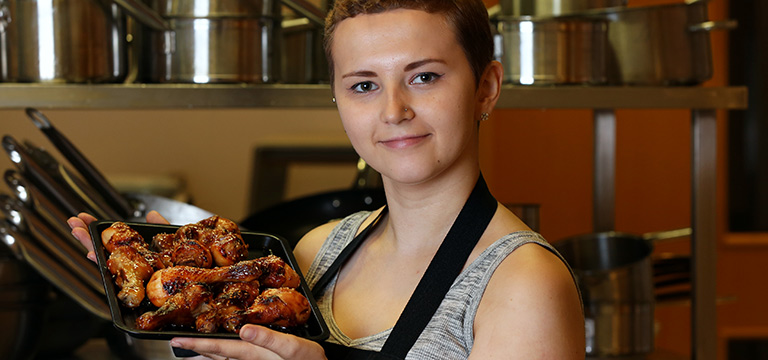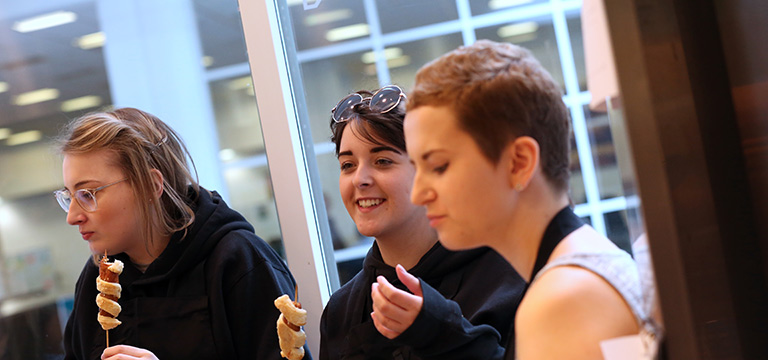
We often take great-tasting food for granted. But for a cancer patient - especially a young one going through chemotherapy - the sense of taste plays a huge part in the treatment journey.

Food is something which is often overlooked when it comes to cancer. But with so many issues surrounding young people, eating disorders and body image it should be one of the most important considerations.
"For anyone who has had cancer, food is probably one of your greatest friends and one of your worst enemies."
Once you’ve had that experience, your taste and your perception of food is irrevocably changed. CLIC Sargent has helped me appreciate the enormity of that and made me realise that whatever my relationship with food, I am not alone.
One of the things that people don’t realise about cancer is that it infiltrates every aspect of your life. Food isn’t just an essential part of life, for me it has also always been a pleasure. I had Hodgkin’s Lymphoma for the best part of three years so I’ve got a fair amount of experience in the combination of food and cancer. I was diagnosed in November 2014, and my food journey was a massive part of that, although I should emphasise that everyone responds to treatment differently and has a different experience with food.
For my first type of chemotherapy I was advised that weight loss was common and so I should indulge my appetite. A lover of food I gladly accepted their advice. However when the treatment led to weight gain and bloating I was confused. Thankfully CLIC Sargent and the hospital team were there to tell me that weight gain was also a possible side effect. At 16, weight changes can be hard to deal with, and my CLIC Sargent social worker helped me deal with the emotional impacts of these changes by understanding why it was happening.
At the end of 2015 I began a stronger course of chemo. For up to a week after each session I could barely eat anything. The mere smell of certain foods made me feel nauseous. I began to avoid certain foods for fear that I’d end up sitting on the bathroom floor throwing up. Sometimes it was even just too exhausting. I remember just about managing to microwave a bowl of soup before abandoning it for bed after only a few mouthfuls.
"Where once food had been something to look forward to, it was now a chore. I would sit at the dinner table gazing
at the plate of food my family had prepared for me but felt little to no interest in eating it."
Five months on and I got the news I’d been waiting for. I was free of cancer. But I still needed to have high dose chemo followed by a stem cell transplant to stop the cancer returning. After the treatment I was neutropenic and had no immune system. Before I’d always had a fair amount of freedom in what I ate, but this meant there was a long list of things I wasn’t allowed. My mum was staying with me in hospital accommodation and she would make all my food for me. My mouth and throat became irritated and sore and it was hard to swallow.
"I could only really eat things that were soft and didn’t require much chewing. A classic example was a stir fry followed by bananas and custard."
While in hospital my CLIC Sargent social worker visited me and appreciated my frustration at having so many restrictions which was a great comfort. When your relationship with food has been so complex and you’ve been used to just trying to eat something, it becomes difficult to get back to a ‘normal’ idea of healthy eating. Six months later, it’s something I’m still trying to grasp.
In August 2017, I was given the opportunity to go to the Morrisons headquarters in Bradford to give opinions on food and cancer with CLIC Sargent. There was lots of free food which is always a reason to attend in my book, but I also got to meet some amazing young people. We all had different experiences with cancer and with food and sharing them was very powerful and emotional.





